Douniya – Stelios Trilirakis and the Cretan cuisine
How far would you drive for a meal?
Crete is special to me. Every time I visit this island, the people, the scenery, the food and the wine speaks to the heart of me. We write a lot of wine. Today, we want to talk about a unique encounter with Cretan cuisine.
On its northern coast, the main towns are Chania, Rethymnon and Heraklion. All three of these have their own charms and a lot of things to do. More importantly, there are vineyards in the vicinities of all three of them. Click here to read about the regions of Crete.
Chania on the western edge is probably the most photogenic. A stroll along the old Venetian harbor before catching a meal at any of the excellent restaurants is a must do for any visitor.
In the well preserved alley ways, one catches a glimpse of the rich history of this city. You see the influences of the Venetians and Turks on the landscape of Chania in it’s churches, baths, fountains and gardens.
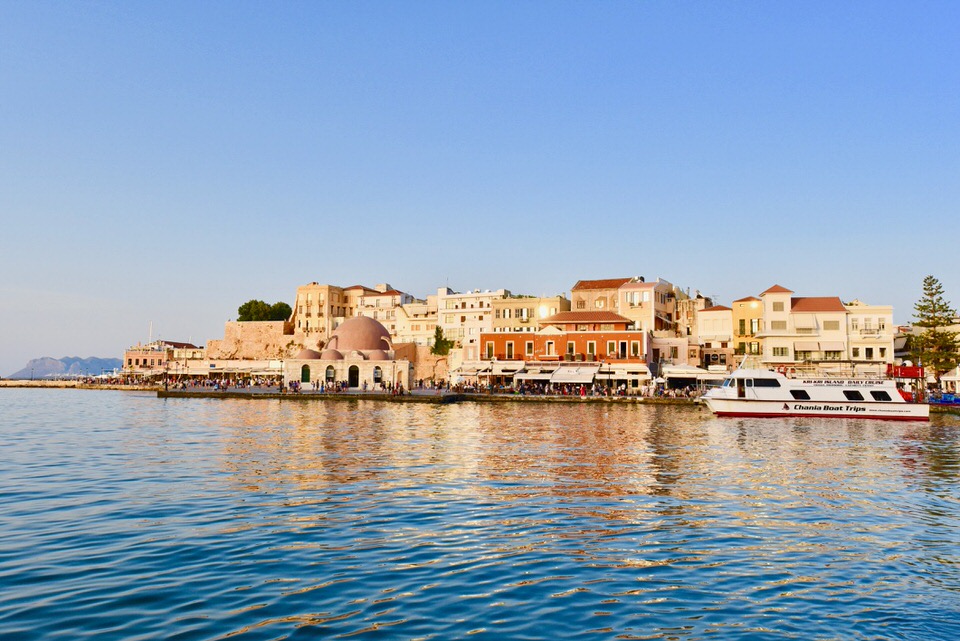
Head to the mountains
Crete’s charms extend beyond its beaches. And boy, are those beaches gorgeous! But to better understand Crete, you have to drive into the mountains. If the scenery were not enough motivation, you should make this trip to have a meal made by Stelios Trilirakis.
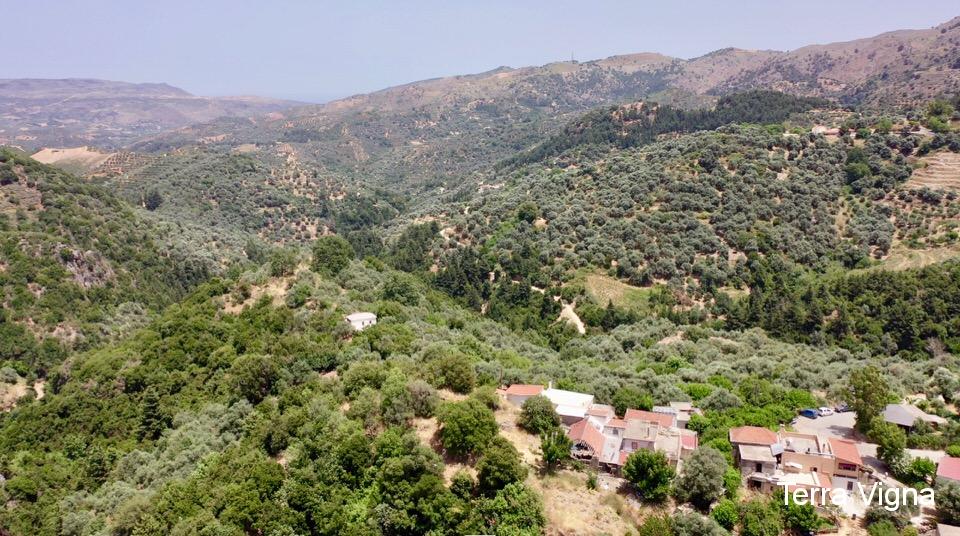
More local than local
Stelios’ story is one of coming home. After a stint in Chania, he decided to do something totally different back in his village.
Almost everything that is served here is sourced not just locally, but in most instances by him. The vegetables come from his garden. Much of the greens and snails etc are foraged from the nearby forest. The meat comes from animals he raises The cheeses- he made them. Honey -from his bee hives. Olive oil-ditto.
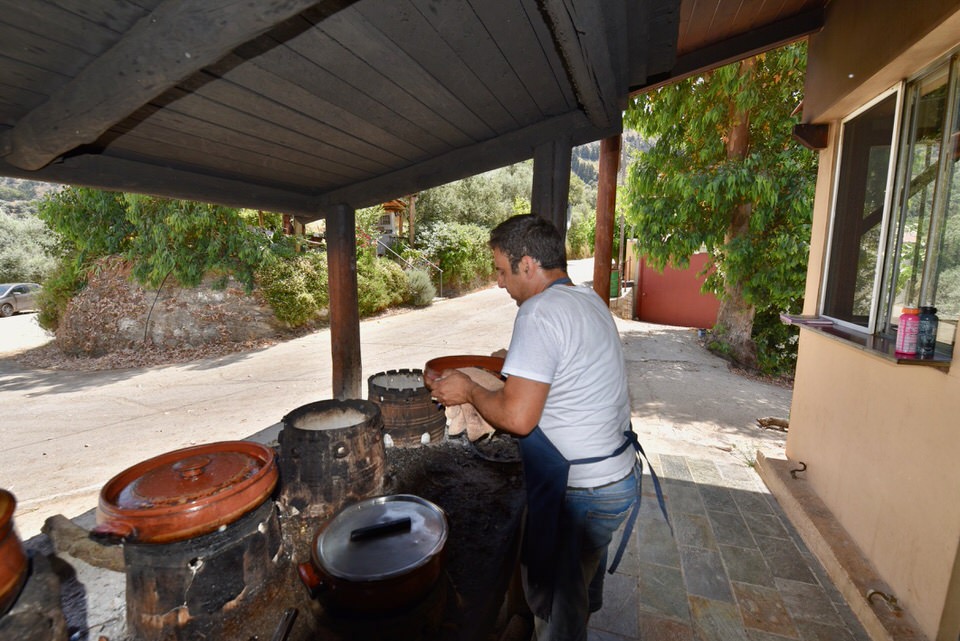
Douniya
He named his restaurant – if we can actually call it that – Douniya.
I asked Stelios what it meant. He said that in the Cretan dialect, it refers to a red breasted bird that inhabits the Cretan mountains.
Also in Crete, with it’s history of Turkish occupation, Douniya is another word for the “World” or “Universe”. For Stelios that means family. He said that ultimately, it is our family that constitutes our World, our Universe. He says this with such disarming candor and as a matter of fact, that it was a window into the man.
The drive from Chania to Douniya is an hour, but it feels shorter as the scenery is stunning. Just be careful of the switchbacks when you drive. The day we drove up there, a part of the road had eroded and it made for a slightly harrowing passage. We arrived just in time for lunch.
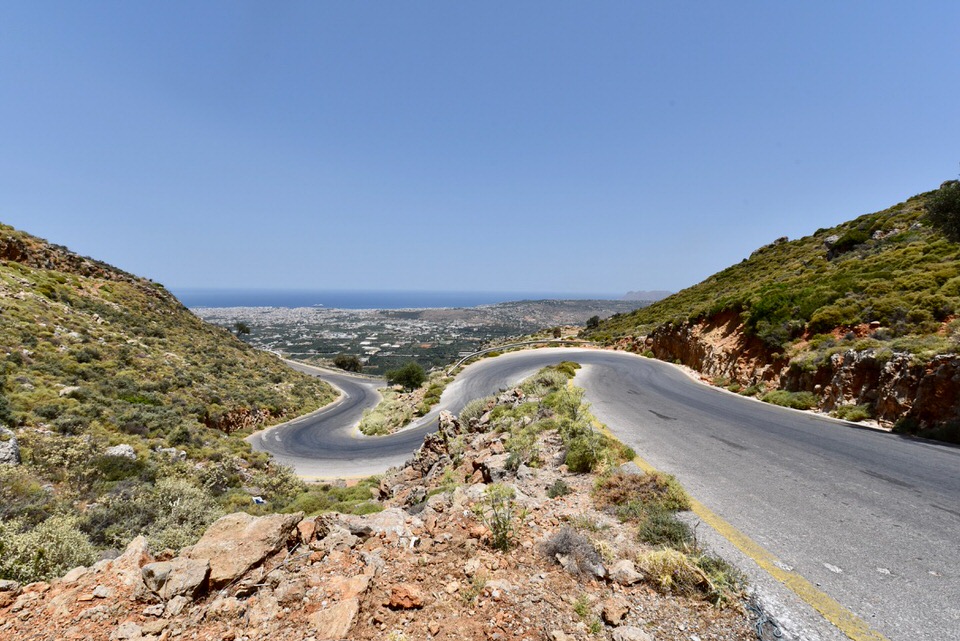
A Cretan kitchen
We spent some time in Stelios’ kitchen. Everything is cooked on a wood stove. The man himself was a bundle of energy as he moved from pot to pan, from oven to oven, showing the myriad dishes he was cooking that day.
The smell of wood smoke and roasting meat and vegetables was intoxicating. Stelios said it would be a short while before the meal was served. We decided to take the time to wander around his vegetable garden.
The paths that went around them were shaded by old trees. We could see across the canyon and besides brush and trees, there were olive trees.
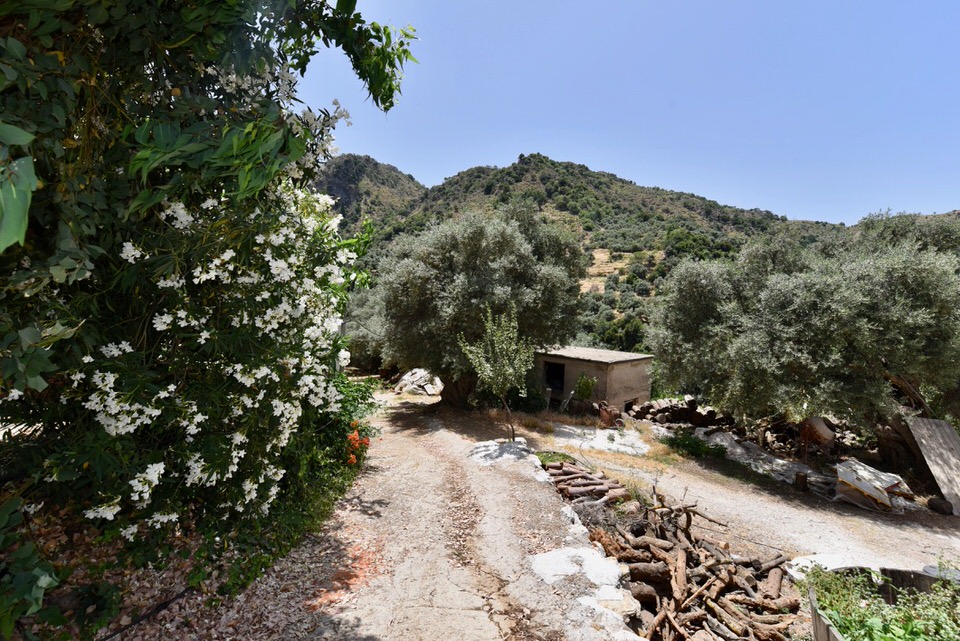
A culinary delight
Since we liked everything that was being cooked, we asked Stelios to pick a tasting menu for us. We opted for the house white wine which was perfect with the meal and the weather. In between courses, Stelios came by to chat and we discussed bread, honey, Crete, Cretan cuisine and of course, families.
This was a great example of Cretan cuisine. This was slow cooking at it’s most elemental. The pace of the meal was also slow and relaxed. Best of all – it was served with such amazing warmth and evident love, that this rated as a truly memorable meal.
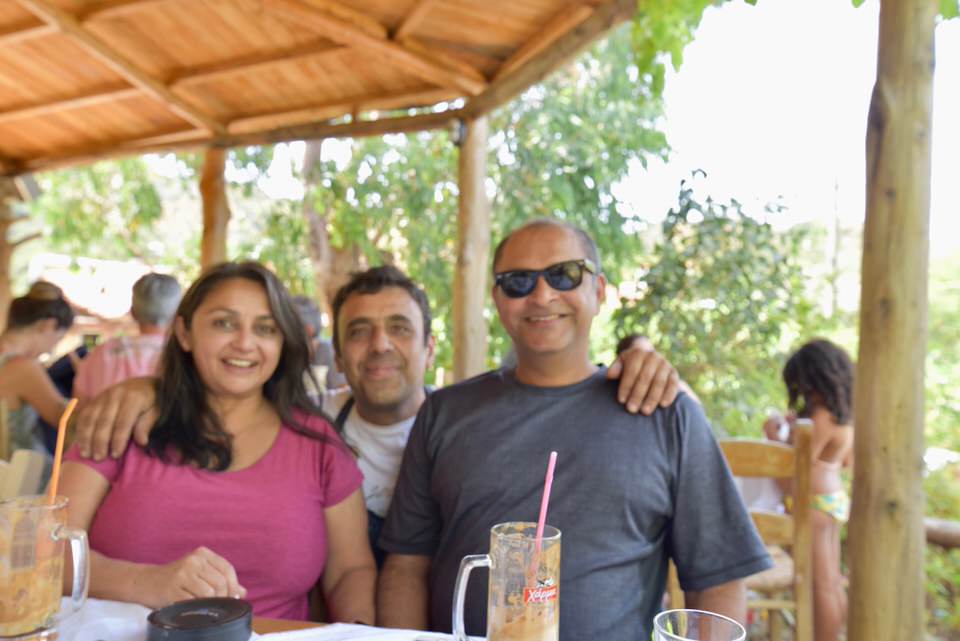


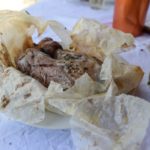
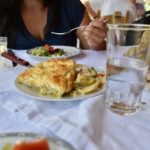
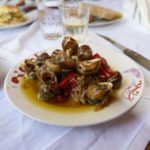
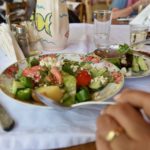
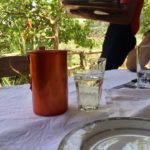
Facebook Comments